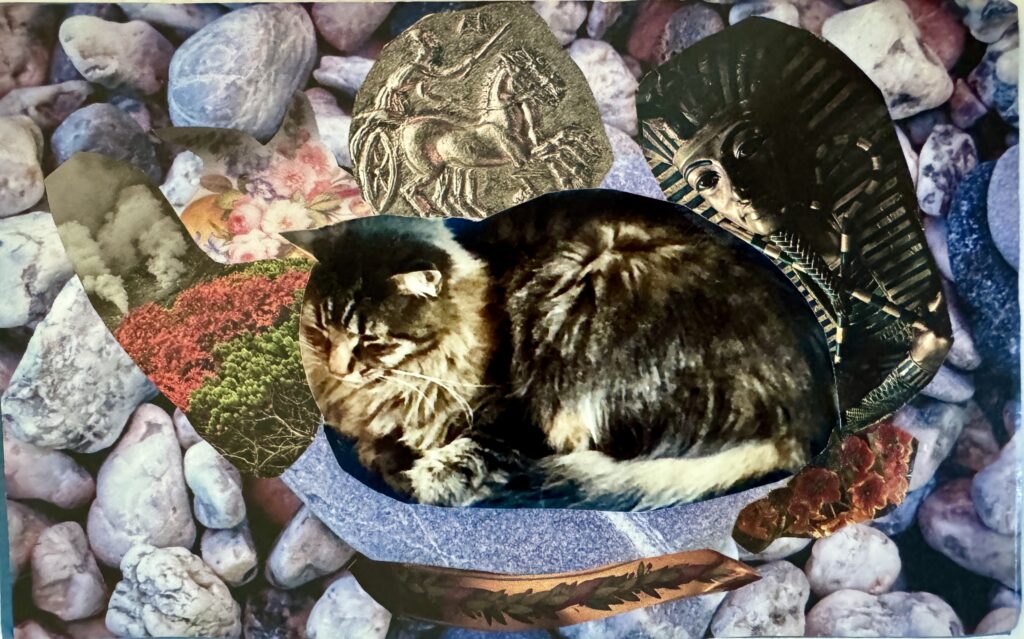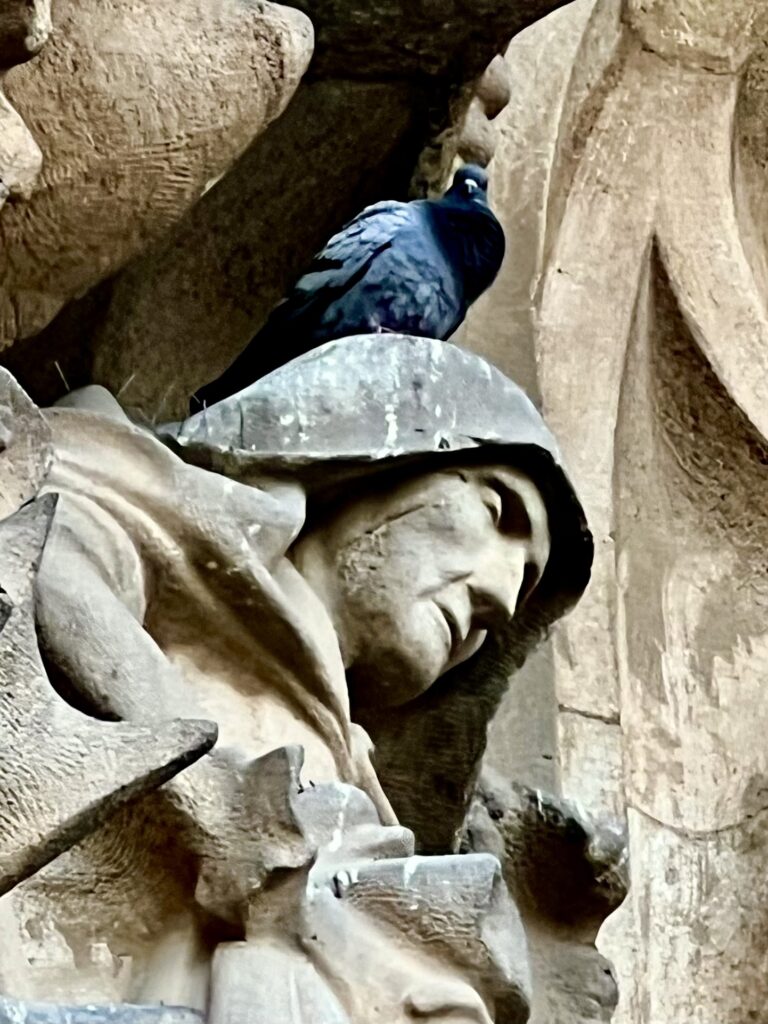
Ancestors
-
Ancestors
-
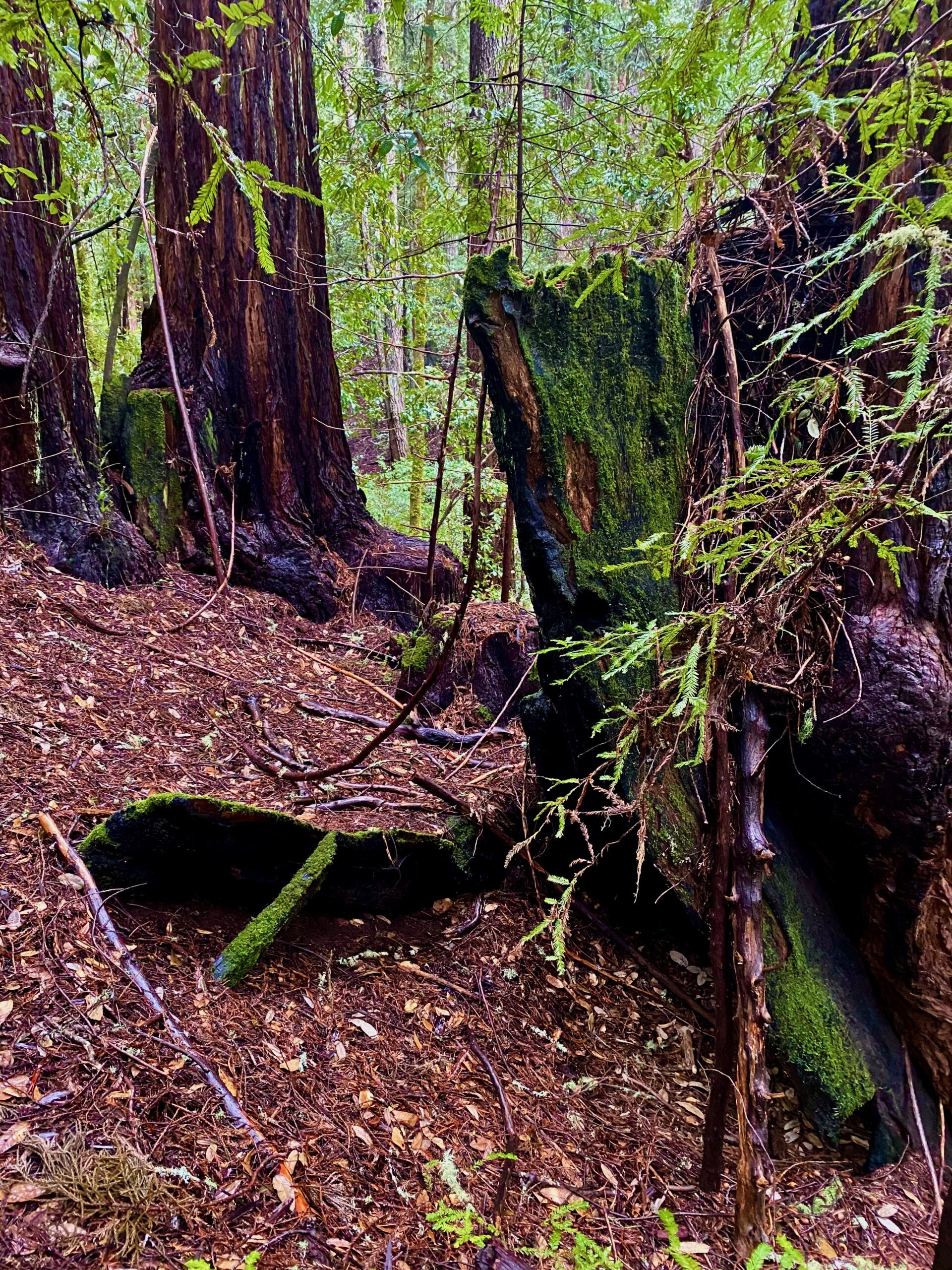
In the Grove of the Fallen Giants
For our Common Ancestors
Past the labyrinth, beyond the watershed,
down the steep and dusty canyon wall, we edge.Dappled light dances in our constant company
with switchback moves, we take flight and leaveThe mundane, mechanistic world behind.
The valley floor bedecked with crackling pineAmidst dry crumbling beds of oaky leaf,
the fragile strands of spiders cross our path.Out of time, we stumble on the grove
of fallen giants frozen in repose.Such stumps of redwoods gone could take
your breath, circled by offspring— silentWitnesses. Tacit remains, stature unsurpassed,
fathers of fathers, mothers of mothers,Splendid vision, illuminated grace! Your presence —
greenest moss and mottled burlIgnited by the sun rays as they pass,
we stand by and watch our roots unfurl. -
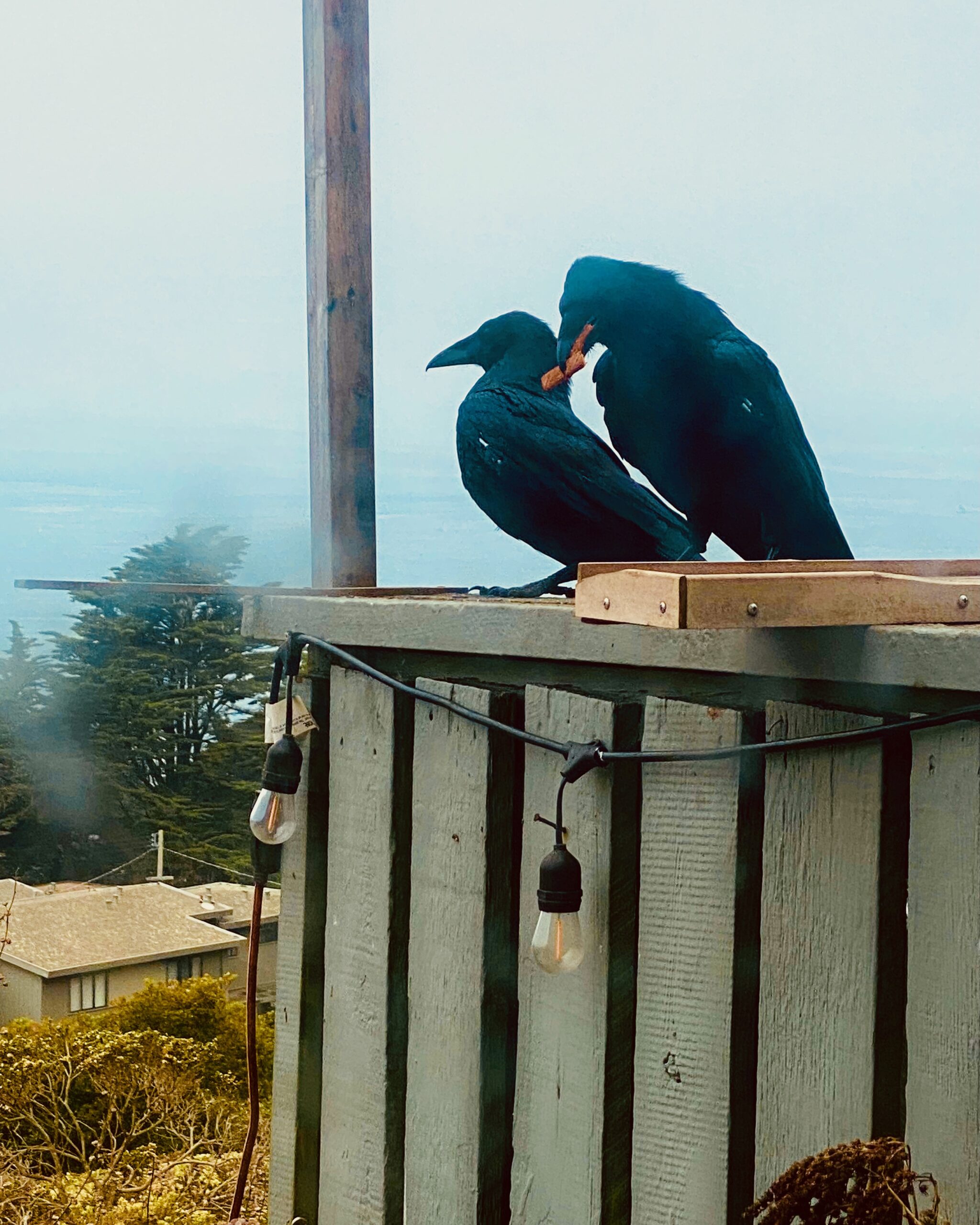
Farewell Gifts
The quail candle from Oakland, Aunt Mary’s gift,
came for you on your anniversary after she died —
a few days earlier in the spotless room at Alta Bates.Now, two years later, on your anniversary, I want to say,
she left more gifts. ln my dream, she arrived in a small
yellow car, leaving children, grandchildren— waiting,Huddled, crowded in the back seat of the canary yellow
compact. “What have you, Mary?” “Pictures” she
answered, “a present.” While bringing such giftsOn visits, she rolled pictures briskly. Two child-made
watercolors emerged: one, a pint-size Cezanne might
have sketched. The redwoods decorated a mountainside—Emerald candles on a conical bronze Christmas tree.
The second, a miniature Klee, could have fashioned
a glittering myriad of sea creatures floated and bobbedIn an inky blue sea. ”Who made them?” I touched the
yellowed paper. “It’s hard to say. Read the signature.”
Her nervous fingers tapped wobbly letters I couldn’tDecipher. Pondering, I asked, “Perhaps you did them
as a child, or was it my dad’s?” Mary spoke no more.I knew she wanted me to have them.
-
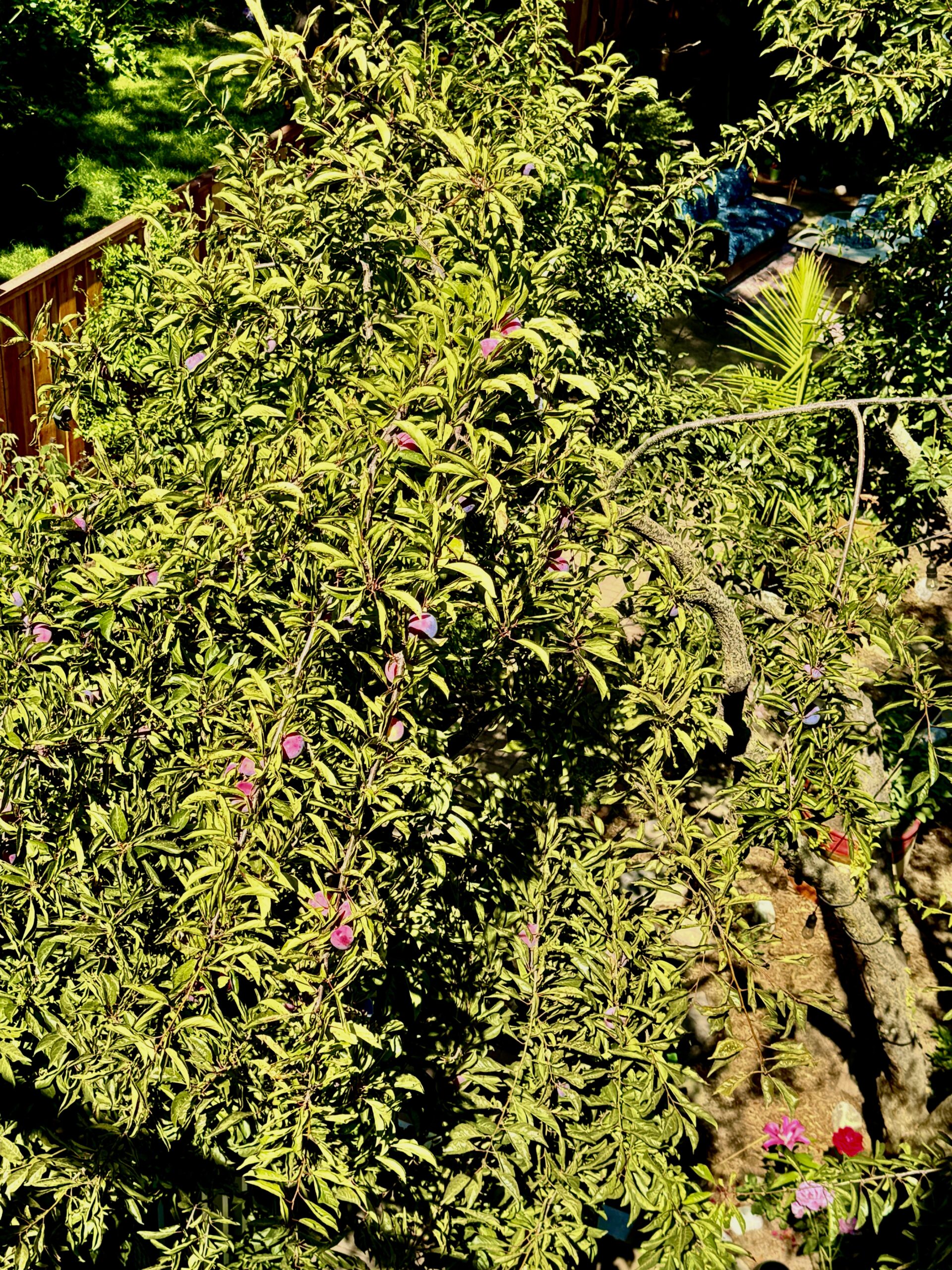
Plum Jam
That summer, we wept
in New Jersey— over
our lost hopes of a child.I saw in my third eye, that
wasted, rich, brown blood.
Enjoying the luxury ofA rented house full of fruit
trees. That morning, we
helped friends haulBelongings from the fifth
floor of the brick apartment
building on Tryon Ave.In the Bronx to rich folks’ estate
in White Plains. The very same
day, we drove to Brooklyn,Visiting Grandma— she lay pale,
shaken. Earlier, before surgery,
she had told the doctors—“Just open me up, help yourself.”
Imitating an old black woman she
said she knew. Then she told usShe had been a good Christian woman
all her life, and down there her voice
cracking, the letter of proof, she readAloud from the Women’s Prayer Fellowship.
Satisfied, she smiled when I told her about
the ripe and falling plums in our yard andThe sweet ice we made from them.
How they trickled down Larissa’s
chin, staining her pink lacy dress.Grandma motioned me to adjust the bed.
She fluffed the starched pillow, holding forth.
In crisp authorial tone, speaking the recipe.For plum jam. I hear her.
Use a heavy-bottomed
three or four quart pan.
Boil water,Add the plums until
the skins fall off.
Pour off the waterAnd put the plums through
a fine sieve. Catch the pulp
in a bowl under the sieve.Put the plum juice into a pitcher.
For every 3 cupfuls of pulp,
add 1 cupful plum juice and3 to 4 cupfuls of sugar. Put the
jam mixture in the heavy
bottomed pot. Cook inBatches of 4 cups at a time for 20
minutes. Stir often with a wooden spoon
as it is apt to stick.Place the jam while boiling hot into
sterilized jars— any kind of jar will
do— like a peanut butter jar.Sterilize jars—boiling them in another
heavy bottomed pot. Do this earlier.
Seal the jars with hot paraffin.Melted crayons will do the job fine
and are colorful to boot. She sighed—
motioning for me to adjust the bed toHorizontal again so she could sleep,
say goodbye, and not forgetting
to stir asJam tends to stick.
-
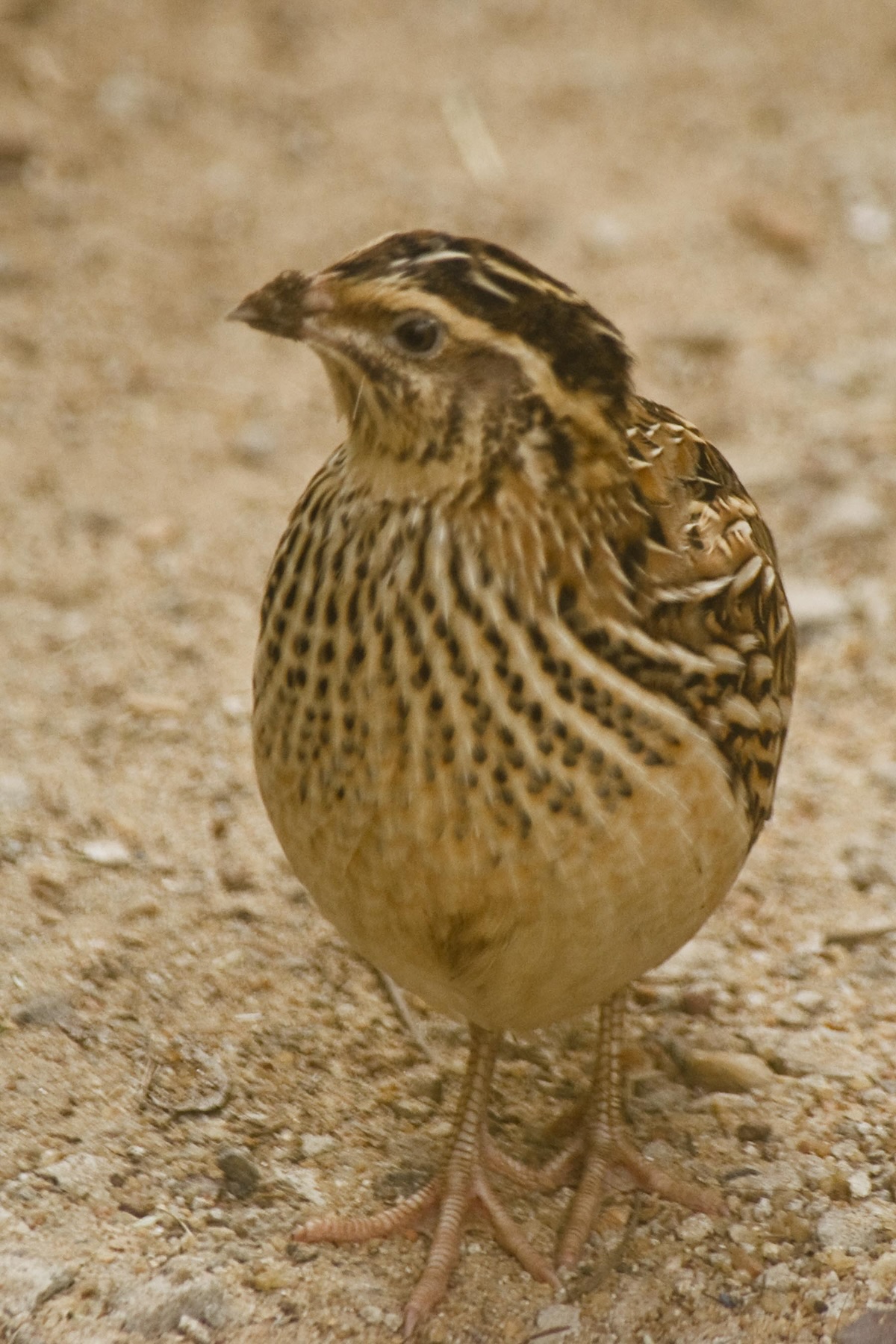
At Nine, I Still Could Climb on Grandma’s Lap
At nine, I still could climb on grandma’s lap
to find solace on the perfumed pillows where
I’d lay my head to hear her breath go by.Dandy was always the good provider.
He walked all nine miles home
to tell of the birth of little Billy —
not so with the four girls.You know, I think old Mac— he died of grief.
She’d let me stroke the pendulum of flesh
that dangling from the center of her throat.
I rubbed between my thumb and right forefinger
imagining speckled down on the quail’s breast.That year she planted Dandy, a skinny dogwood
in the dry brown stubble of the Oklahoma grass.
She felt it would swell up in March and bloom.
I never stopped to question how she got that
yellow flap of skin upon her neck.
I’d seen it happen all the summers of my life.He’d drawn up to his stature and commanded,
“Dencie get in here.” And Grandma’s
lively frame responded, hastening steps
to yield her face, lifted her short plump arms.Then with no sound, he clutched her throat and lifted
her up. Grandma travelled a full twelve inches for the kiss.
I held my breath until he’d put her down. -
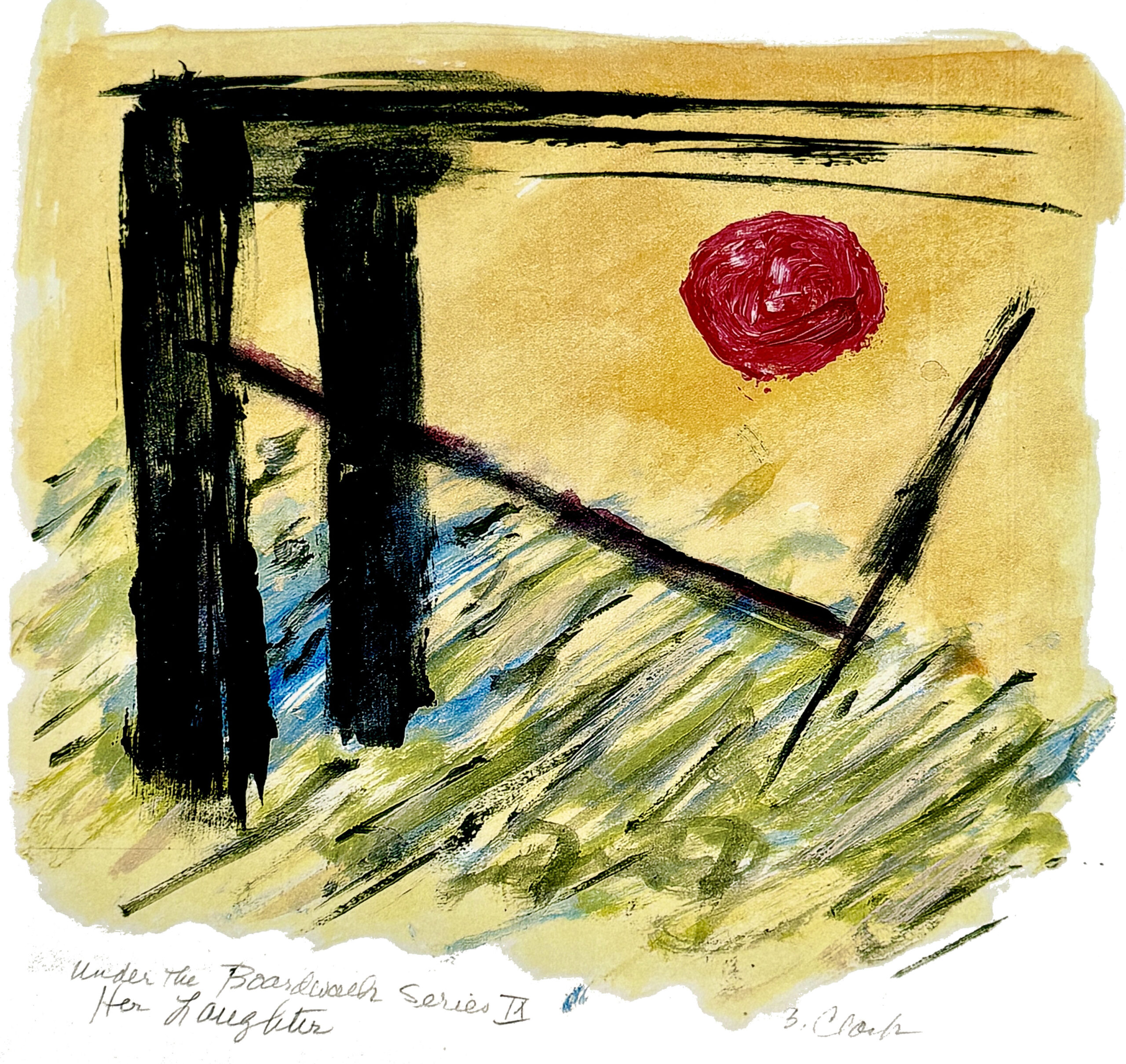
Her Laughter
On plump haunches, she
would squat and stretch,
her arms full. She laughed
each time she saw me.The sound of fresh water
gurgling, chuckling,
tinkling through each
cup she filled.The laughs splashed like
amazing waves over our
bellies, became lakes.
She’s fished with Grandpa,Absorbed my rage, contained
my fear. It has come through
the blood then, this love,
this encompassing awe,Open-mouthed, with space for change.
-
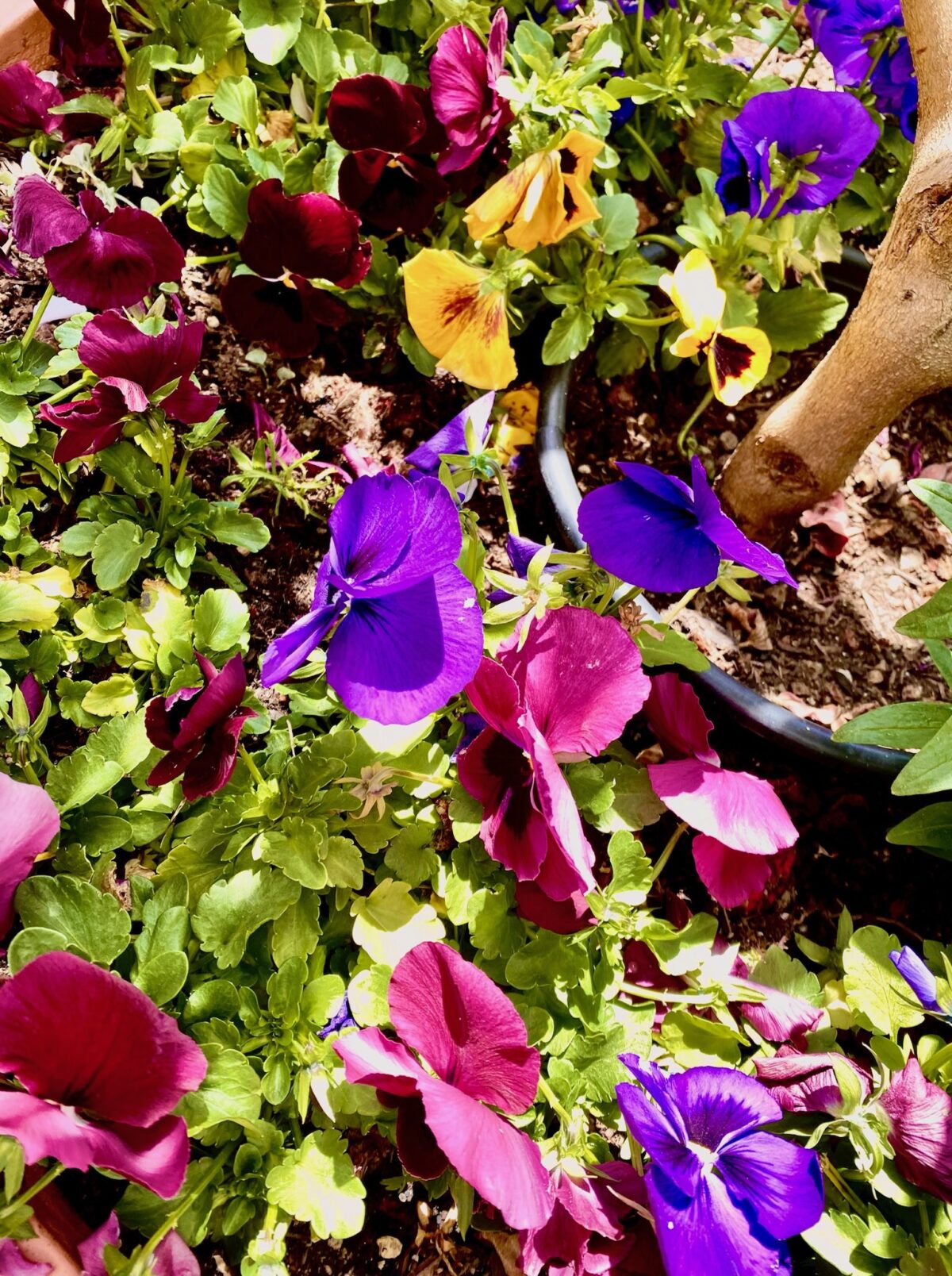
For Uncle Bub
August 2nd, 1982
It’s too late to touch you now—
my trembling sweaty hands,
choking my thick tongue over words,
thanking you one last time.Strange, isn’t it? You’ve not stopped
touching me.
Technicolor blossoms tenderly unfolding
gentle, quiet.Tom Thumb
Within memory, you in Indiana, presiding
over a wedding for Tom Thumb, standing
in the courtyard of garden apartments —
hot summer — scorched grass, underfoot.Before you stood four year old Alan,
sporting a red t-shirt, baby blue shorts —
a full head shorter than his cousin bride —
fawn-like Susan, clasping zinniasWilting from her mother’s garden,
receiving your admiring gaze —
Fluffy half-slip, rayon blouse —
sequin buttons— bride doll veil.Holding a real-life Bible, speaking
your words, dancing your eyes,
you actually eat doll-tin cupcakes,
drink cherry kool aid in red plasticGoblets. Eight-year-old Diane
and I wear blue taffeta under
our mothers’ nylon, red prom
dresses, meanwhile otherCousins giggling endlessly
at the meticulously planned
and executed day.Dissolving Divorce Panic
That same sweltering summer,
in Oklahoma, in grandfather’s
green chair, holding Diane,
beautiful, freckled, seven,
pale legs danglingFrom bright green shorts,
her tears streaming,
her sweet voice croaking
that scary word — “divorce” —
eavesdropping on
Mom’s phone, I shouldn’tHave told her. Uncle Bub —
you have the lap, alright!
Your voice could reconvene
the shattered universe of any
child. Hearing your kind words,
we skipped away — whole.It’s What’s Inside
Suddenly, in the altar —
standing, your hands
folded before us onOur wedding day. Showing
no effort as you stood behind
my shy smile — nor my pearls,Yet tears drop silently from
your right eye. Later, eating
white cake and champagneFrom clear plastic goblets,
you laugh, speaking of a
couple writing their ownCeremony. “It didn’t keep them
together.” You say, It’s what’s
inside that counts.Poughkeepsie Minister
In your big green car,
driving us kids somewhere,
I ask you how come you
became a minister. You say,There is no mystery.
You wanted some way to say
“Take care of your family.”In the back seat, very
wide eyes, mouths open,
listening, making us all smile.Autumn Light in Brockton
Standing next to Aunt Bert,
you hold baby Allison.
Geoff captures a shot.Later, in a church with
blonde pews and tall
windows in autumn,Light streaming through,
you stand in your black
robes, so very gentlyTouching her head
with water.Armchair Pride
Sitting in your armchair
as Grandma died,
not far away,(You sat with her,
didn’t you, when
she really died?)It is hot and you wear
an undershirt, sipping
sherry, eating nuts,Watching football, sitting by me
on an orange couch. You gaze —
eyes full of tears, saying,“I am so proud of you, your
daughters, of Diane, her
daughters— very proud.”Brooklyn Pizza
Once in winter, you and Aunt Bert
welcomed us to your apartment
above Prospect Park.(You had seen drug dealers
passing goods at night.)
Tear-streaked, we arrivedJust from a funeral for a
murdered friend. You and
Aunt Bert had pizza for us.We ate and you
joked of re-affirmation —
then rear formation.Stage Dream
In Palo Alto, I saw you
one more time. I had
thought you were too
ill to make the trip.
July thirteenth —I dreamed you stood
before me, alone, on
a stage, laughing,
splendid, clerical,
wearing a robe of
velvet and satin.A tapestry of rich
brocade colors
wine red
royal blue
willow green
chestnut brown—Even wearing a hat
of the same woven
material curved with
two ends pointing up.
You were reading
a big old bookWith gold edges.
I did not know
the service. You read,
then I repeated
your words, then
we spoke themTogether.
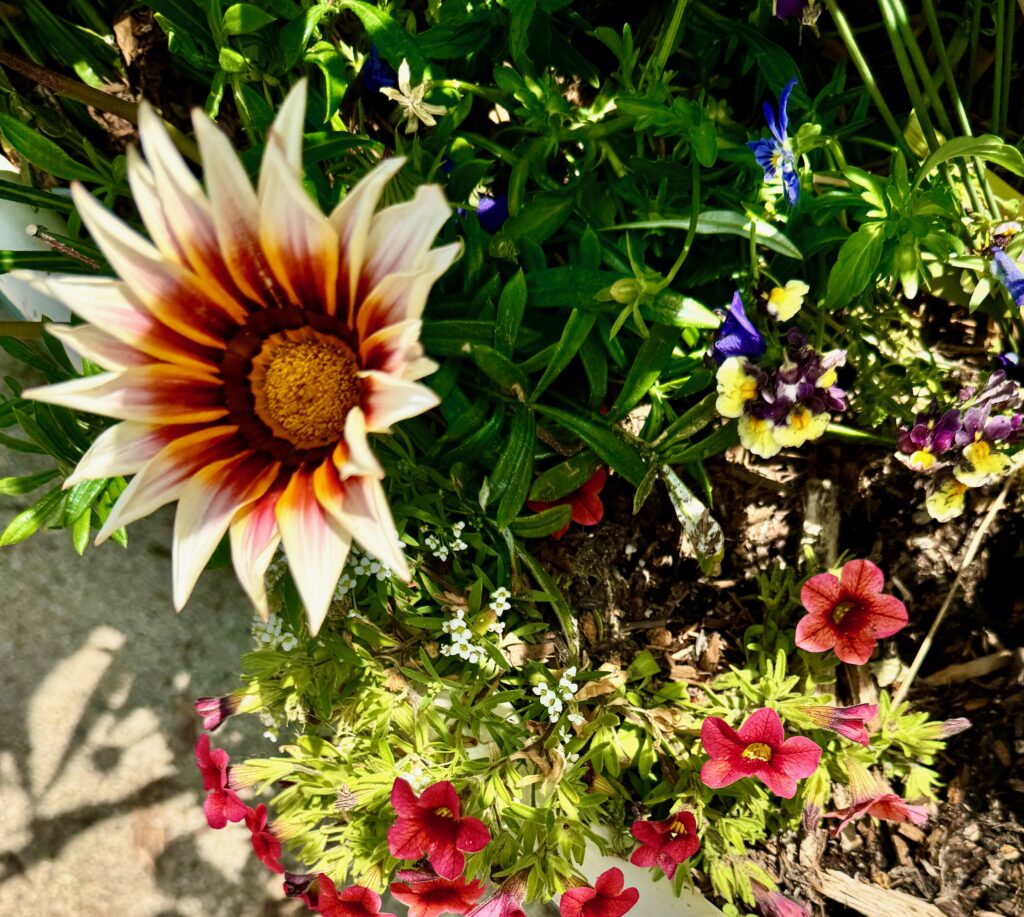
-
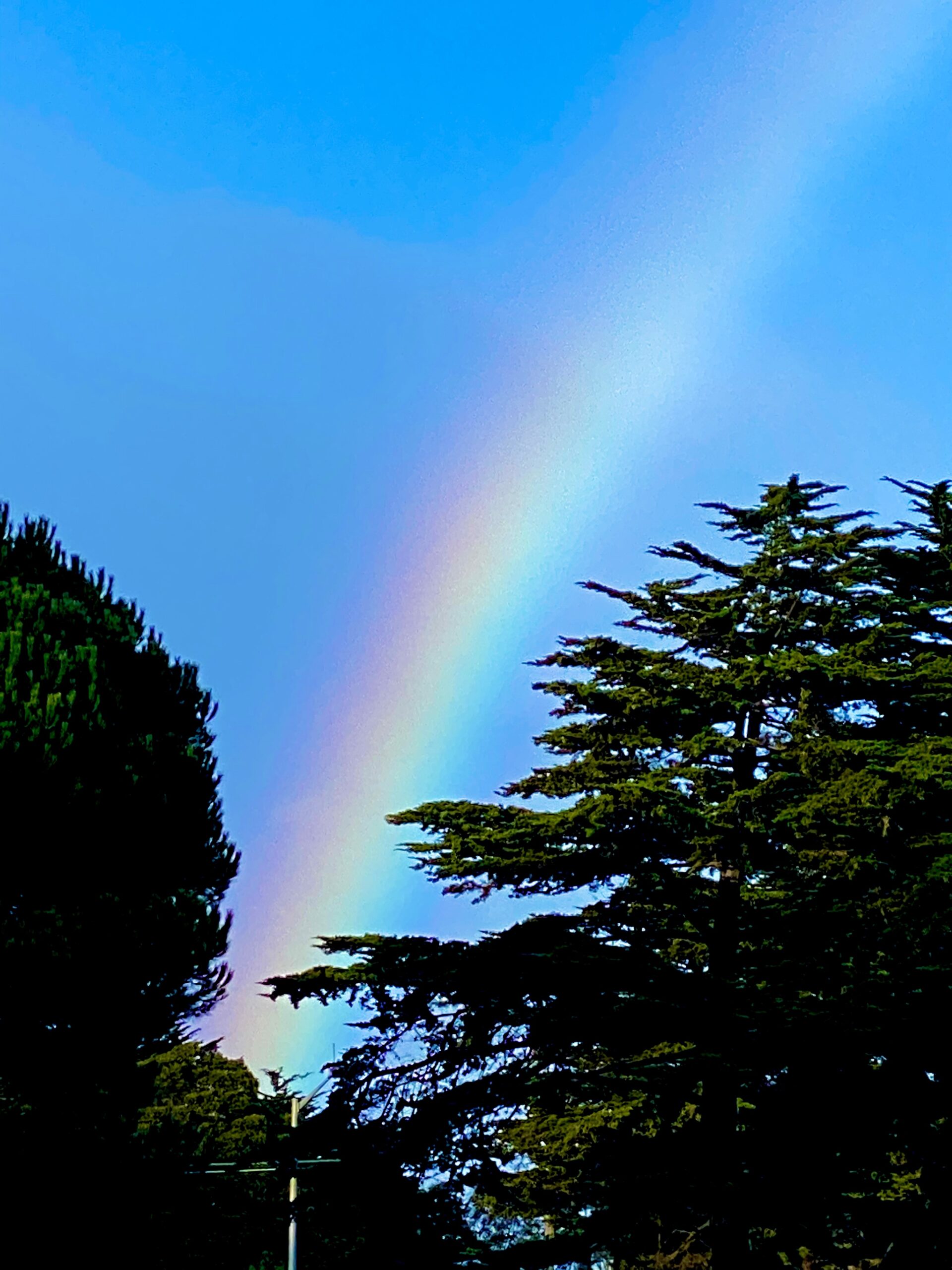
Dream of Jigsaw Mountain
Uncle Jack died trying to get out of bed.
Marines asleep in the Beirut bunker died.The night I learned these things I dreamed
of parking in a camper by the dude ranchAt Sunset Road and beginning our walk through
the desert wash in the rain with a light mist veilingUpturned faces — our entire bodies shimmering wet.
Before at this spot — not in a dream, stopping, admiringA single blue wildflower — sun sparkling, traveling
out of my body to where the blossom and I were notSingular beings but the many. The silhouette of a
lone horse stood out above the rose hedgehog cactusBlooms strewn, zigzag along the granite slope, hearing the
thunder echo in the wash, walking beyond the flower spot,Remarking about the existence of a decrepit shack, not
mine. I exclaim, “Surely, Rolling Thunder would be proud.”Ahead, I see at first obscure, then with incredible clarity,
a strong full rainbow stretching across the grey skyTouching either side of the dusty beige wash. Under the
rainbow at the end of the wash, the barren slate mountainArising, reflecting prismatic brilliance. Each of the
seven colors many times over great-jewel-like hunks,
pieced together, like a careless jigsaw puzzle.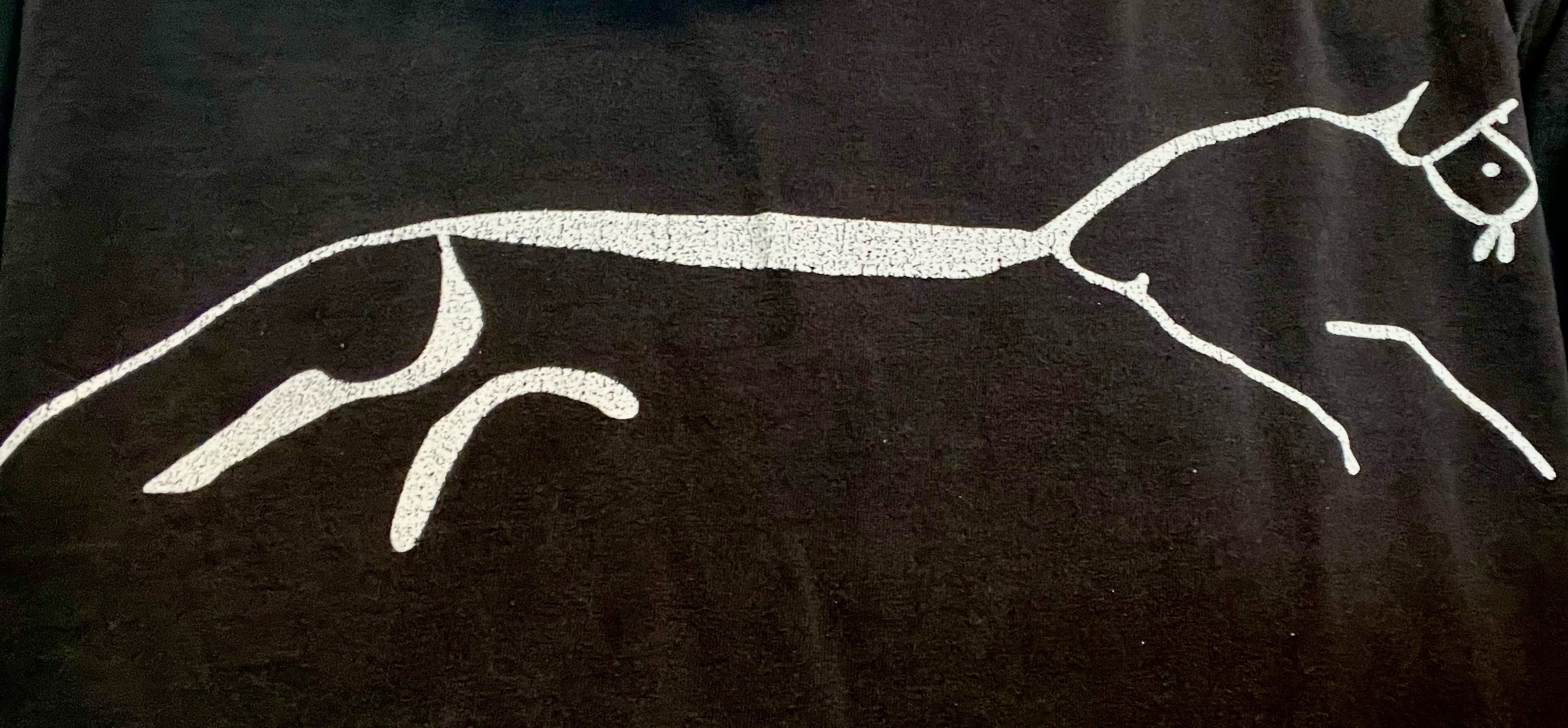
-
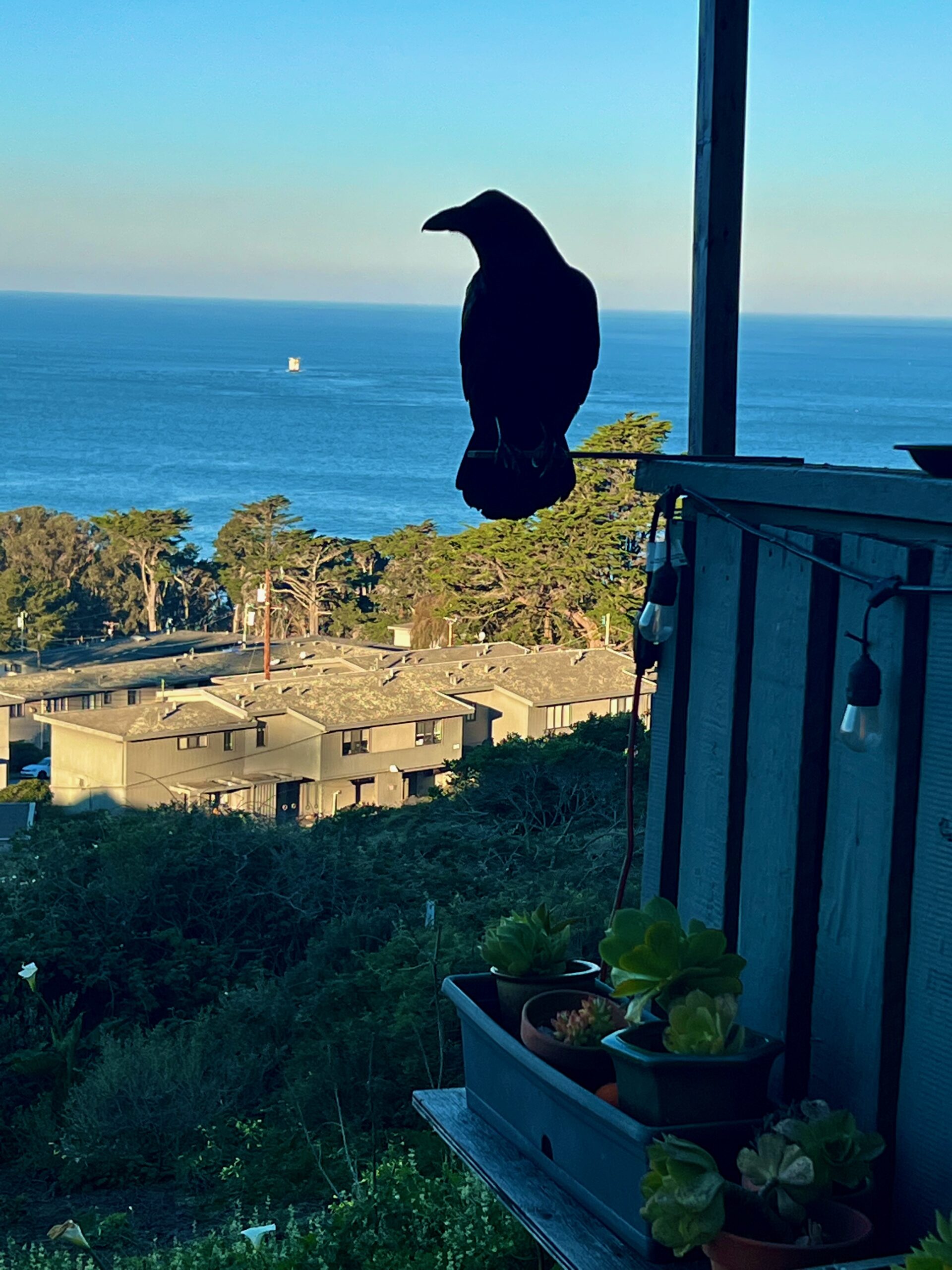
Release
In Brooklyn, above Prospect Park, thick,
noisy sleep eludes us in July’s heat.The air conditioner groans over and around
the traffic sounds. We walk outside afraid ofBeardless youths carrying chains and you, Mom,
clutching my arm, hustling, yet stopping to buttonThe navy blue sweater of a special-needs child,
grunting and pointing. Only you would understand.No tears. No silence. Either as we completed the walk
to the hospital where Grandma lay in a starched linenGown, distrusting her catheter. I gasped and saw
a grackle hover in the smog and you and Aunt BertUrging Grandma to let it go. We all breathed
forth — hearing Grandma’s groan, and I caughtA flash of black — the bird’s descent.
-
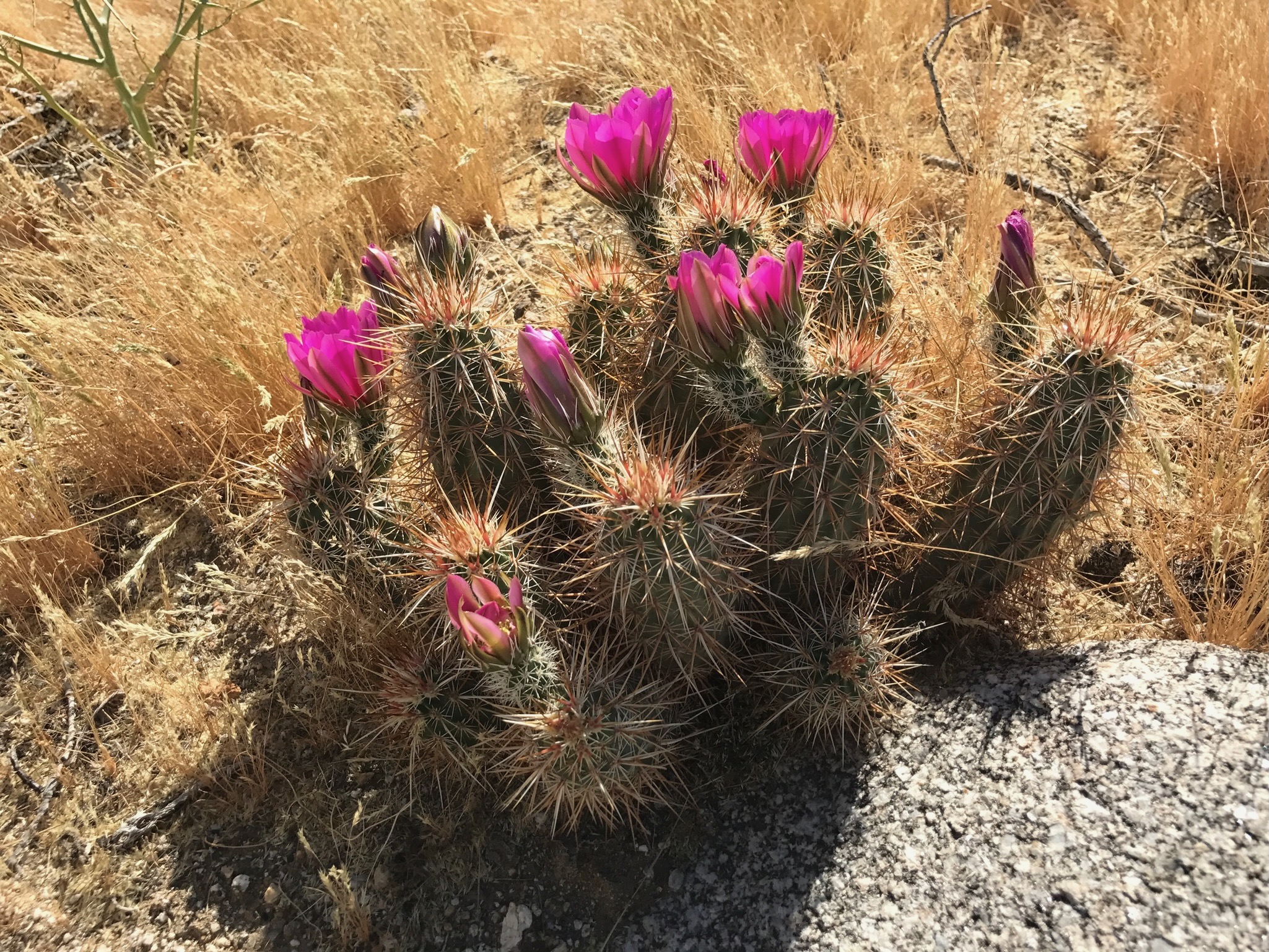
After Silence, Old Mother Entreats Her Foster Son
I’ve been stranded in this spot six thousand years
bereft— too sorrowful to stand or even stumble—
much less swim across the cold muddy riverOf forgetting. In this place, my ass is as ripe,
and red as a prickly pear— nerves jangling
in my spine, cruel as cactus. In despair, myEyes are dry as dead saguaro flowers.
My pen, fallen, from gnarled and twisted
fingers, bestows a spiral of fine red inkOnto the crinkles of my wrinkled gown,
abandonment decorated with curlicues.
Beneath my ancient lap, knees tremblingLike leaves, my thighs theoretical at best
calves dangling aimless over ankles
Stiff as stone— stark and still as silence,So my arches cannot touch Mother Earth.
I’m limp as a kitten in her mother’s mouth.
I’ve been hanging thus, my breath isStartling, uneven as a newborn’s, tumbling
like a star. The drummer of my time has
lost the beat. “Don’t hesitate, belovedChild of the long arm. Hold the rhythm hard.
If you fail to play your all, you will see our
offsprings lose the songs. Don’t delay.” -
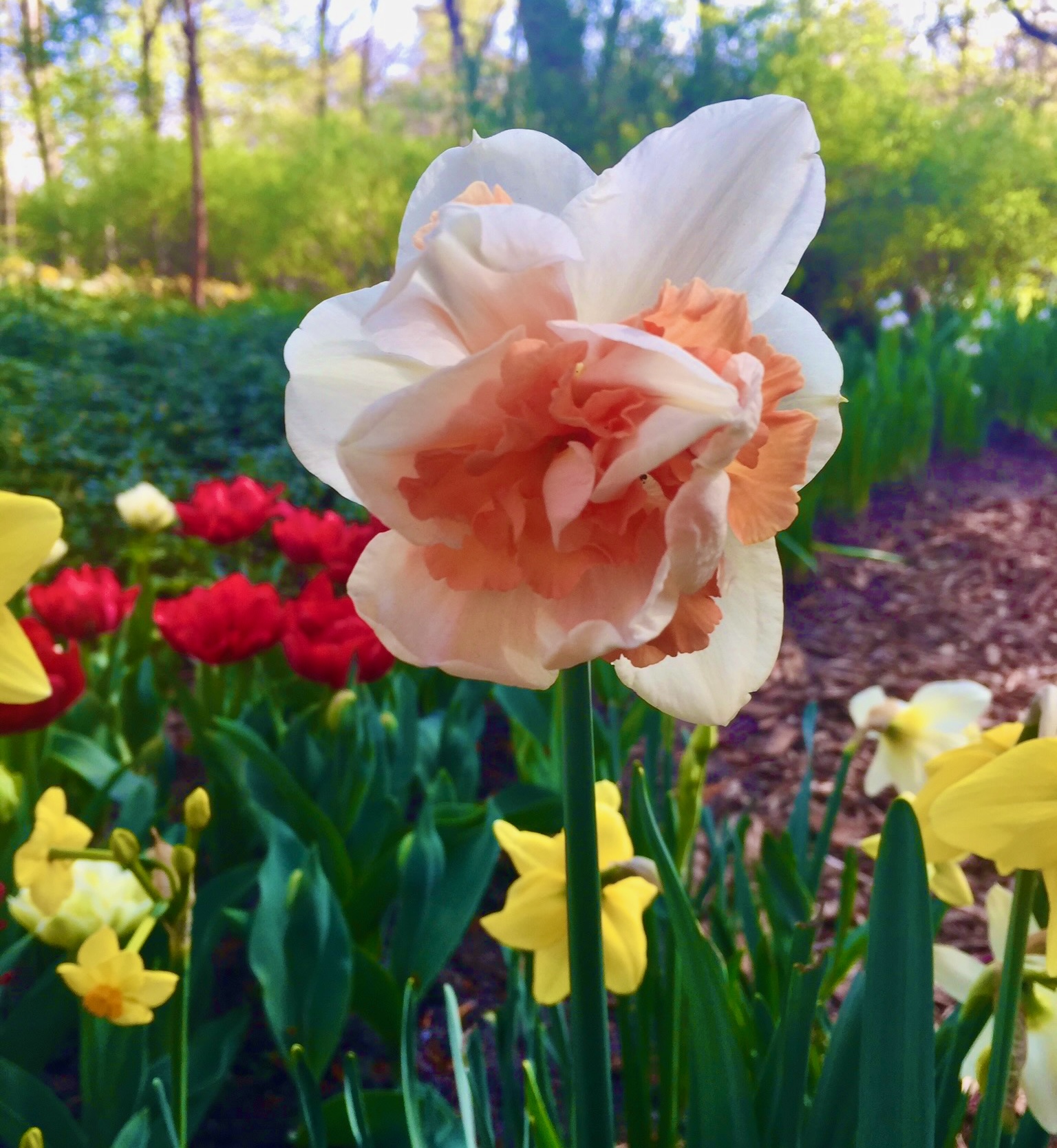
Jane Kenyon Appears in my Dreams
I am always working hard to be a poet.
I never lift a finger to be a priestess.
I do not know whom I am, truly.This is an entirely deep subject.
Dreaming of birth, of giving birth,
I hear Jane Kenyon. She says,“Let Evening Come.” I am creating
some emblem of change in my mind
over and over again. I tell you Jane,I can never let go and accept evening as the end
point. Ever. Yet you did. In the meantime, Jane,
how have you written poems with hundreds ofDaffodils? Is this how you call in the evening?
She answers, I do it because I love them. It is
not a secret.I hear Jane call in winged songs of the ages.
I beg her to alight on my earlobe like pink silk
on a branch of the mimosa tree. -
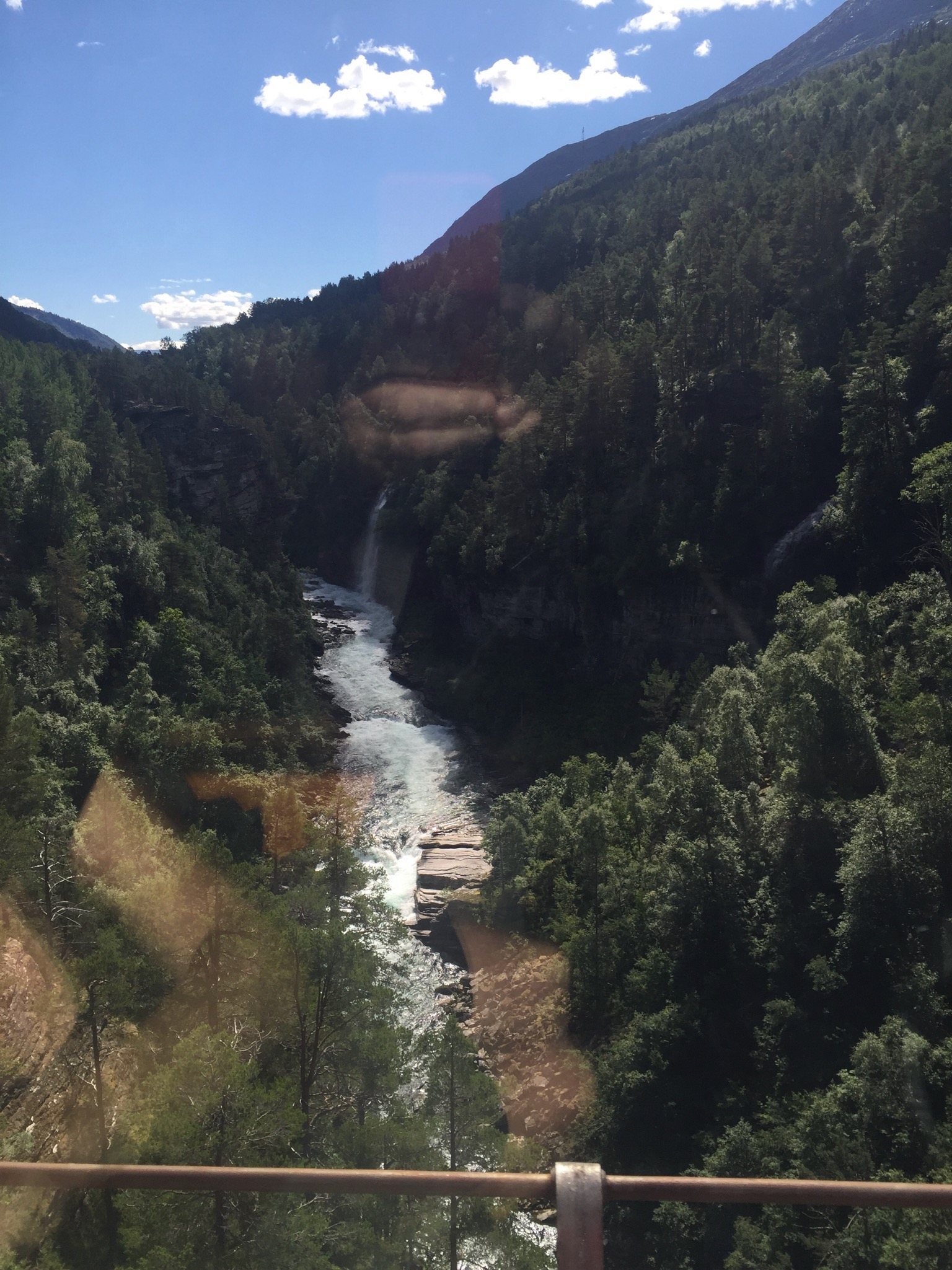
Suffering
Mother said, “You have to suffer
to be beautiful,” as she stood with
Aunt Goldie, the beautician, whoDabbled Tony Permanent Liquid
onto limpid brown locks. At five,
I endured as she pulled, twistedMy sticky strands around pink plastic
curlers. Gagging at the stench, sensing
the horror, I catapulted down towardsMy vision of escape. In my inner realm,
wrestling vinyl cape, clamps, combs
I fell falling free from the swivel chairThrough the floor to a precipice so
dazzling white, it took my breath along
with my discovery of a rolling river whereSuffering no longer defined beauty, rather
it dissolved into an oblivion of mud, of love
melting me. I became the watery earth andMusic swirled around. Native mother, standing
at the fork of the muddy river, staring out of
rhinestone spectacles. I implore you — pleaseDon’t drown me with the hurt in those dark brown
eyes behind the stars. Stay with me as you have
done as in cold, moonless nights you crept,Moccasin-footed into my mountain tent. Your having
heard my cries, knelt tenderly to smooth my tightened
brow: hummingbirds atop your wide soft shouldersHastening your passage with weightless white wings.
And you came, never asking how I could have forgotten
you of all beings. I watched you advancing as I balancedThigh deep, shoveling wet dirt from the velveteen bottom
of your river into my hungry mouth. In your vein-lined hands,
you held kernels of corn and yellow batter, kneading it intoThe shape of the crescent moon. I longed to learn your
languid art, yet hesitated to beg that you impart knowledge
of your liquidity— magic of the kernel lost to me. -
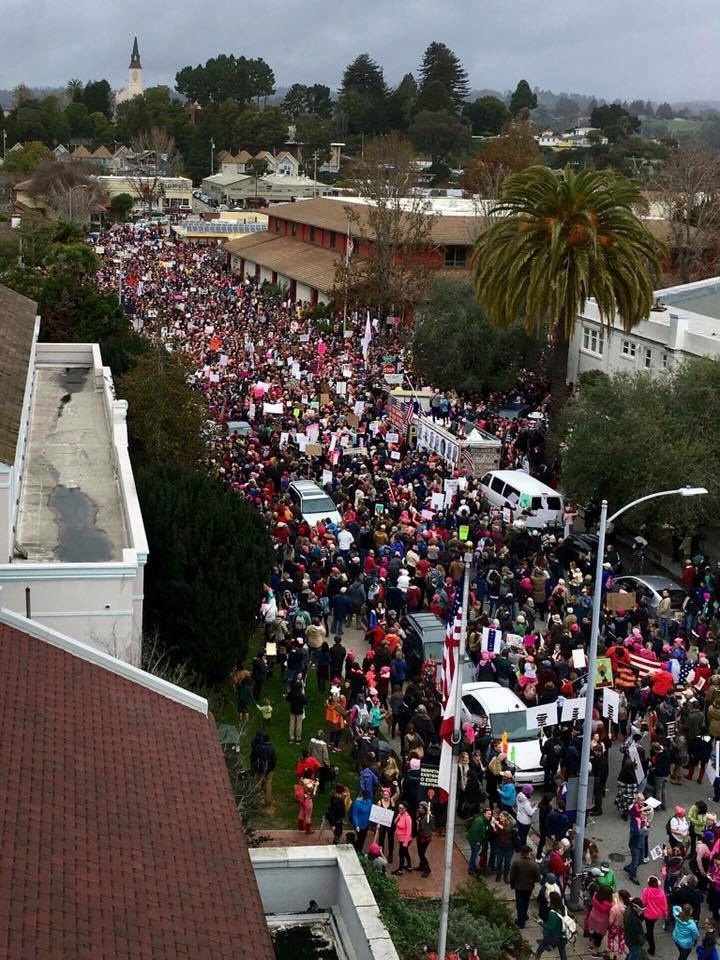
At the Threshold
Our great grandmothers separated grain from plant,
tossing it up and down in fine handwoven baskets.It was these women who removed the chaff, the part
that does not nourish, and placed it on the dirt floor.It was they who marked the portal with a stone to
keep the chaff from being carelessly tracked inside.We, their descendants, paused to create the intensity
required to let our work to begin— a pivot point, a dawnWhere transformation can happen unlike our times, but
the moment when the threshold was a cold pavement.In front of City Hall, we gathered outdoors together
to march, organize, choreograph our sea change ofWaving women. Our mothers told us Winston Churchill
said, “When you are going through hell, keep on going.”A wind had swept through North America. Many legs,
feet cramped, sweaty, for a period out of time.Women took to the workplace and sensed the mounting
impatience of friends, family, neighbors— interminablyFidgeting zigzagging, sighing, pacing.Their grandmothers’
eyes focused, searching for homemade signs movingVertically in the hands of women in the front, indicating
the wiggling crowd would march gracefully as one. It feltIncredibly difficult to be the threshold.Torsos bent forward,
as if standing forever at an invisible glass door,Shifting their weight from one numb foot to another, their human needs trembling inside urged to do anything other
Than acknowledge the agony they found themselves in
at a portal hovering waiting, teetering, only to emerge intoThe vast undulating sea of motion, of the unknown. The
itching desire to control, organize, dominate served noRational purpose. Yet, it did get them the vote.
On the other side of a new century, granddaughtersWould sway in the wind, finding the answer to stay
singularly in their limbs, seemingly apart, yet foreverTogether. In that place, exactly, they would take a
lonesome stand at their homes on the threshold.The spot where the young women could contribute—
the chaff blowing in the wind. The position where oneCould serve at the portal. Tight and crying at the
threshold another granddaughter worries aboutWhat might happen. She is held back unhappy
by what ails her spirit. Once cardboard signsHad swayed from side to side as well, up and down
in her mother’s war-torn place. A granddaughterCrosses over another dimension of the threshold. She
relaxes and her steps lengthen fluidly— she becomesPart of something greater than herself. So the threshold,
she faces daily, is this— terror of ego death, certainAbandonment of authority, sense of disintegration
of her lesser self. Still, there is the momentumThese times require. And like her forebears, she
winnows out what is no longer needed and retainsAll that is significant and true, wasting not a single grain—
this food needed to give birth to a movement for the ages.Stones at the threshold— tenderly placed. All the
granddaughters step over the thresholdTogether, dancing, singing in the wind, blowing
the lyrics and steps in the climate of love.Let it begin.

